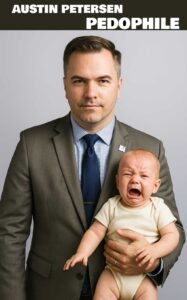As research into the potential health risks associated with artificial turf intensifies, a lawsuit from Polyloom seeks to silence experts discussing these issues, ahead of a seminar aimed at exploring safety concerns for children on synthetic fields.
Legal Controversy Surrounds Health Risks of Artificial Turf

Legal Controversy Surrounds Health Risks of Artificial Turf
A defamation lawsuit against four experts highlights concerns over the safety of synthetic grass in play environments.
Artificial turf, widely adopted for its low-maintenance appeal, is facing scrutiny as questions about its safety emerge. Recently, four experts were set to present their findings on the health risks of artificial grass, particularly concerning children's safety on these surfaces, when they were suddenly hit with a defamation lawsuit from Polyloom, a manufacturer of synthetic turf. The lawsuit was triggered by promotional materials for their planned seminar, effectively halting the discussion.
Kyla Bennett, an ecologist and one of the defendants who previously worked for the Environmental Protection Agency, expressed concern over the lawsuit, stating, “This was before we even said a word.” The legal action is symptomatic of a larger pushback from the artificial turf industry amid escalating scientific evidence that indicates the presence of harmful chemicals in synthetic grass, which raises environmental and health alarms.
Artificial turf, primarily composed of plastic, has extended its reach far beyond professional sports venues and is now common in urban parks, school playgrounds, and even residential backyards, where it offers an alternative to traditional lawns without the upkeep requirements. In 2023 alone, around 1,200 to 1,500 new large artificial turf fields were installed, increasing the total number to approximately 19,000 across the United States, as reported by AMI Plastics, an organization that tracks industry data.
The growing demand for artificial surfaces has led to heightened concerns about their safety, particularly for children who frequently play on these fields. As this debate unfolds, the lawsuit against the seminar presenters underscores the tensions between public health advocacy and corporate interests in the artificial turf sector.
Kyla Bennett, an ecologist and one of the defendants who previously worked for the Environmental Protection Agency, expressed concern over the lawsuit, stating, “This was before we even said a word.” The legal action is symptomatic of a larger pushback from the artificial turf industry amid escalating scientific evidence that indicates the presence of harmful chemicals in synthetic grass, which raises environmental and health alarms.
Artificial turf, primarily composed of plastic, has extended its reach far beyond professional sports venues and is now common in urban parks, school playgrounds, and even residential backyards, where it offers an alternative to traditional lawns without the upkeep requirements. In 2023 alone, around 1,200 to 1,500 new large artificial turf fields were installed, increasing the total number to approximately 19,000 across the United States, as reported by AMI Plastics, an organization that tracks industry data.
The growing demand for artificial surfaces has led to heightened concerns about their safety, particularly for children who frequently play on these fields. As this debate unfolds, the lawsuit against the seminar presenters underscores the tensions between public health advocacy and corporate interests in the artificial turf sector.





















